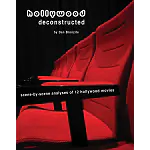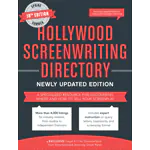When you first get the idea for a story it will probably focus around an interesting character, event, act three plot twist, high concept or thrilling action sequence, but one thing we do not normally consider at the start of the creative writing process is the time frame of the piece. Is your story set in a single day? During the course of a week? A month? Or even over several years? The time frame you choose will have a significant impact on how you tell your story and the pacing of the narrative.
Clarifying the timeline of your story right from the start will save you a great deal of time and effort in rewrites further down the road when you ultimately discover that you have either tried to squeeze too much information into your script or conversely need more scenes to pad it out. But even if we put the technicalities of the time frame aside, choosing a time frame to suit the genre or story can actually enhance the drama.
Think of a film like John Badham’s Nick of Time in which Johnny Depp has only ninety minutes to save his six-year-old daughter. And then there’s the excellent TV series 24 which not only uses the time frame of a single day to heighten the tension and suspense but also as a stylistic device by presenting multiple events that are happening in various locations simultaneously through split-screen.
When you plan your script, consider what will be the best time frame for your story. There’s nothing wrong with having a drama take place over many years. This will of course slow the overall pacing of the piece but that may be appropriate to your story choice and help an audience identify with your characters as they develop. However, would the same time frame work for an action movie? It may, so long as you have given it some thought at the start, understand the possible obstacles your chosen time frame may introduce and create some innovative solutions to these hurdles.
Remember, there are no hard and fast rules and every story is different, principally because every screenwriter has their own voice. This is what makes screenwriting so interesting. Just be aware of how important time frame is to storytelling and how the wrong choice at the start could create a mountain of problems either for you as a writer or for an audience trying to engage with your tale.




